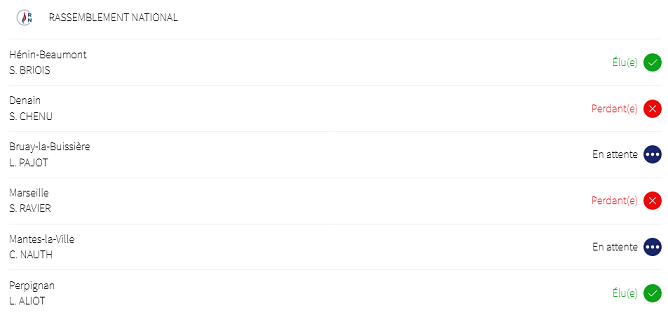Giuseppe Sandro Mela.
2020-06-30.
Aulla. A proposito del ponte crollato. Ecco la manutenzione (non) fatta.
Per l’Anas il ponte crollato ad Albiano non aveva problemi.
Stato assassino e Gavio correi. Crollato un altro ponte autostradale.
Crolla tratto viadotto su Torino-Savona
Ponte Benetton. I primi venti indagati. “Sapevano ma non hanno fatto nulla”.
Ponte Benetton. J’accuse contro i Governi del partito democratico dal 2011 ed il 2018.
*
Ponte Benetton. J’accuse contro i Governi del partito democratico dal 2011 ed il 2018.
Italia. Gallerie Autostrade. Un crollo al giorno toglie le auto di intorno.
Si stacca rivestimento della volta, chiusa galleria sulla A6
* * * * * * *
Lo stato manutentivo del sistema viario italiano, massimamente quello autostradale, è da decine di anni inesistente. Qualche volta si asfalta una carreggiata, ma poco o punto è stato fatto per controllare la statica dei ponti né quella dei rivestimenti interni delle gallerie.
I risultati sono sotto gli occhi di tutti. Ponti che crollano, gallerie che si sgretolano, frane che si abbattono sulle strade, i pochi lavori di durata quasi eterna, inchieste giudiziarie che durano quel tanto che basta a mandare tutto in prescrizione.
Non ci si stupisce quindi se l’Automobilclub tedesco pubblica dei titolacci.
«Italia flop»
«gallerie: Sette su otto non sono sicure»
«tunnel del Centro-Nord: Mancano estintori, telefoni e uscite di emergenza. In 15 anni nessun intervento»
* * * * * * *
Il problema è che in questo caso i tedeschi hanno ragione.
«Siamo molto arrabbiati, il vostro Paese in 15 anni non ha fatto i lavori che doveva per la sicurezza stradale»
«L’associazione degli automobilisti è in allarme: avverte i vacanzieri in rotta verso il Sud di fare attenzione a circolare sulle nostre strade, mentre promuove Austria e Croazia»
«A preoccupare così tanto la Germania sono i tunnel autostradali, che secondo i test effettuati a campione a febbraio scorso dall’ente di Monaco di Baviera non rispettano i criteri minimi di sicurezza»
«Anche la Ue, ad ottobre scorso, ci aveva avvertito, ma da molti anni facciamo orecchie da mercante»
«Non si scherza sulla pelle dei guidatori»
«Si va dalle carenze più comuni, come la mancanza di aree di sosta per i veicoli in avaria, all’assenza di estintori o di telefoni di emergenza, e ancora, poche o niente uscite di emergenza, pochi ripetitori del segnale radio, segnaletica inesistente o poco chiara»
«Sono sette su otto le gallerie testate che non hanno passato l’esame»
«Sono dislocate tra Liguria, Emilia Romagna, Friuli Venezia Giulia e Valle d’Aosta»
«Abbiamo scelto quelle che si trovano sulle rotte per raggiungere il mare e il Meridione, cioè quelle strade che migliaia di tedeschi ogni estate percorrono in auto, compreso in queste settimane»
«Dal tunnel del Tarvisio sull’A23 Udine-Villaco, alla galleria Allocco sulla Milano-Firenze (l’unica che ottiene la quasi sufficienza), e ancora Banzole sempre sulla Milano-Firenze presso Montefredente, Castelletto sulla Genova-Livorno presso Recco, Fornaci sulla A10 Genova-Ventimiglia, Les Cretes sulla A5, Roccaccia sulla SS 33/E 45 Perugia-Cesena, vicino a Bagno di Romagna»
«Abbiamo avuto remore a pubblicare l’indagine, scusateci ma non potevamo nascondere la verità, e cioè che le vostre gallerie non rispettano gli standard richiesti dall’Ue per la sicurezza. Stiamo parlando della vita degli automobilisti»
«L’Unione europea aveva lasciato tempo fino all’aprile 2019 ad alcuni Paesi tra cui il nostro per raggiungere gli standard. Cinque anni in più di altri Stati, per mettere a norma le gallerie»
«Cinque anni in più di altri Stati, per mettere a norma le gallerie. Ne abbiamo molte e vecchie, e dobbiamo investire molti soldi: per questo Bruxelles aveva concesso una dilazione nelle verifiche. Non è bastata, e a ottobre abbiamo ricevuto una notifica di inadempienza, a cui abbiamo dovuto rispondere con un piano di lavori infrastrutturali delle opere. Ma per ora ben poco si è mosso»
* * * * * * *
“a ottobre abbiamo ricevuto una notifica di inadempienza”






















